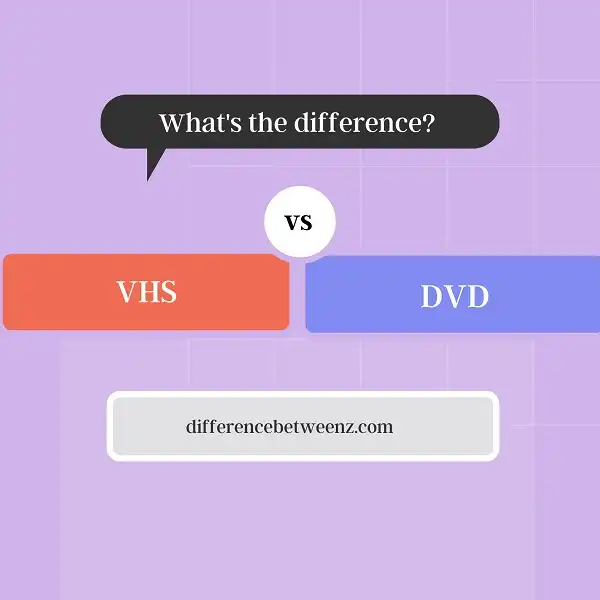There was a time when VHS tapes and DVDs were the only ways to watch movies at home. However, with the rise of streaming services like Netflix and Hulu, DVDs are becoming a thing of the past. So, what is the difference between VHS and DVD? And which one is better? Here’s a look at the pros and cons of each format.
What is VHS?
VHS is a home video cassette format that was launched in 1976. It became very popular in the 1980s and 1990s when it was used to record and distribute movies and TV shows on VHS tapes. VHS tapes were significantly cheaper to produce than DVDs, and they could be played on VHS players, which were widely available. However, VHS tapes are now obsolete, as they have been replaced by DVDs and Blu-ray discs. VHS tapes can no longer be played on most modern TVs, and few companies still produce VHS players. As a result, VHS tapes are now largely collector items.
What is DVD?
DVD is an optical disc storage format that was introduced in 1995. DVD discs are similar in appearance to CDs, but they can store much more data. DVD movies are typically encoded using MPEG-2 video compression and Dolby Digital audio compression. DVD players can be used to play DVD movies, as well as CDs and other types of optical discs. DVD movies can also be played on PCs and laptops equipped with DVD drives. In addition to movies, DVD discs can also be used to store data, such as music files, photos, and software programs.
Difference between VHS and DVD
VHS (Video Home System) and DVD (Digital Video Disc) are two different types of video formats. VHS is an analog format that was developed in the 1970s, while DVD is a digital format that was developed in the 1990s. VHS tapes are made of magnetic tape, while DVDs are made of optical discs. VHS tapes can hold up to 6 hours of video, while DVDs can hold up to 8 hours of video. VHS tapes need to be rewound after watching, while DVDs do not need to be rewound. VHS players are larger and require more power than DVD players. DVD players can also play CDs (compact discs). VHS tapes are slowly being replaced by DVDs because DVDs offer better picture and sound quality, as well as more convenience.
Conclusion
The VHS format was eventually replaced by the DVD format, which is still in use today. However, with the advent of streaming services and online video, it is likely that DVDs will soon be replaced as well. What are your thoughts on this? Do you think there is a future for physical media formats like DVDs and Blu-rays, or do you think they will go the way of the VHS tape? Let us know in the comments below.


